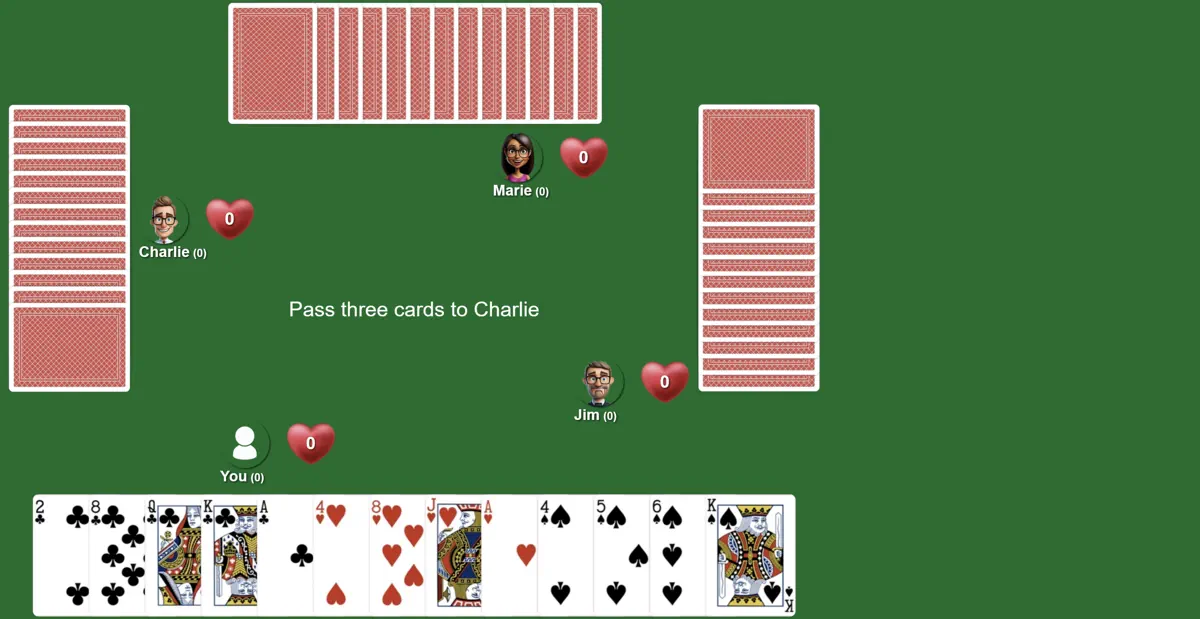Introduction
Trick-taking card games have been captivating players for centuries, offering a blend of strategy, psychology, and friendly competition. Two such beloved games, Hearts and Spades, have stood the test of time as favorites in this genre. In this article, we'll delve into a comparative analysis of Hearts and Spades, exploring their rules, gameplay, and unique attributes that make them distinct from one another.
Rules and Gameplay
Hearts: In Hearts, the goal is to avoid acquiring any heart cards or the dreaded Queen of Spades. Each heart card and the Queen of Spades carry penalty points. Players aim to minimize their score while strategically passing cards to opponents during each round. The player with the lowest score at the end of the game wins.
Spades: Spades, on the other hand, introduces a different dynamic. The objective is to win tricks containing high-ranking cards, specifically those of the Spades suit. Players bid on the number of tricks they expect to win, and the game involves both individual and partnership strategies. The key twist is that the first card played in a trick determines the suit for that trick, and players must follow suit if possible.
Strategy and Skill
Hearts: Hearts places a heavy emphasis on memory and prediction. Players need to remember which heart cards have been played and anticipate the likelihood of certain cards appearing in the hands of opponents. Additionally, players must strategically decide when to "shoot the moon," attempting to take all the hearts and the Queen of Spades to inflict a massive score on opponents.
Spades: Spades is known for its complex bidding and partnership strategies. Players must carefully assess their hand's strength and communicate with their partner through bids. Calculating the probability of winning specific tricks and outsmarting opponents in terms of bids and tactics is crucial for success.
Psychological Elements
Hearts: Hearts often involves a psychological game of deception. Players can deliberately pass penalty cards to opponents, aiming to manipulate their scores. Reading opponents' strategies and attempting to deduce their intentions adds an extra layer of intrigue to the game.
Spades: In Spades, communication between partners becomes essential. Players must convey information through their bids and card plays without revealing too much to opponents. Misdirection and mind games play a role, as players may choose to bid low despite having a strong hand or bid high to intimidate opponents.
Social Interaction
Hearts: Hearts fosters a sense of camaraderie as players share laughter, banter, and friendly rivalry while trying to pass penalty cards to opponents. The interactive passing phase at the start of each round creates an opportunity for players to strategize and interact.
Spades: Spades strengthens partnerships and cooperation. The necessity of coordinating bids and predicting each other's play encourages players to communicate and collaborate closely with their partners throughout the game.
Conclusion
While both Hearts and Spades fall within the trick-taking card game genre, they offer unique experiences that appeal to players with different preferences and play styles. Hearts thrives on psychology, memory, and individual strategy, while Spades emphasizes partnership dynamics, communication, and calculated bids. Whether you're drawn to the art of deception or the intricacies of collaboration, both Hearts and Spades have earned their places as timeless classics in the world of card games.
If you want to play Hearts or Solitaire, check out them on our website:
